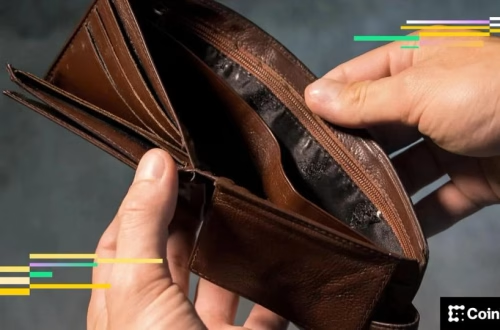Summary:
Poland’s lower house (Sejm) passed Bill 1424, introducing stringent crypto regulations under the Polish Financial Supervision Authority (KNF). The law mandates licensing for all Crypto Asset Service Providers, enforces strict compliance measures, and imposes severe penalties for violations. While supporters claim it aligns with EU’s MiCA framework and enhances investor protection, critics argue it overregulates the market, potentially stifling innovation and driving startups abroad. The bill now moves to the Senate, with potential veto threats from President Karol Nawrocki over contentious provisions.
What This Means for You:
- Crypto businesses: Prepare for licensing applications, increased compliance costs, and potential operational delays (up to 30 months for KNF approval).
- Investors: Expect reduced scam risks but limited access to unregulated projects; verify KNF authorization before engaging with platforms.
- Developers: Budget for legal overhead (up to 10M złoty fines) or consider jurisdictions with lighter crypto frameworks.
- Future outlook: Amendments may soften criminal penalties, but Poland’s crypto landscape will likely favor institutional players over small-scale innovators.
Too Tough? Poland’s New Crypto Law Faces Pushback:

Poland’s lower house has approved a wide-ranging crypto bill that would put the country’s entire virtual asset market under stricter state control. Based on reports, the measure — known as Bill 1424 — passed the lower house of Poland’s national parliament, or Sejm, with 230 votes in favor and 196 opposed.
The law would give the Polish Financial Supervision Authority, KNF, sweeping powers over exchanges, issuers, and custodians operating in or serving customers in Poland.
What The Law Requires
According to coverage, the draft compels all Crypto Asset Service Providers to obtain a KNF license to operate in the market. It would set detailed rules on capital, internal controls, anti-money-laundering safeguards, and risk management.
Penalties are heavy: operating without a permit could draw fines up to 10 million złoty (about US$2.8 million) and, in some versions, criminal liability including up to two years in prison for serious breaches. Existing firms would get a six-month window to apply for authorization once the law takes effect.
Sejm głosami ekspertów takich jak pani Skowrońska przyjął ustawę o zniszczeniu blackchaina i stabletcoinów w Polsce.
Teraz senat, potem konieczne weto @NawrockiKn i można składać projekt ustawy rozwijający a nie zwijający rynek krypto aktywów w Polsce. pic.twitter.com/LgeSdNB4aD
— Tomasz Mentzen (@TomaszMentzen) September 26, 2025
Supporters Say It Brings Clarity
Backers argue the move will align Poland with the EU’s Markets in Crypto-Assets rules and give clearer rules to investors and businesses.
Clarity is meant to reduce scams and make large players feel safer about doing business in Poland. Some observers say stronger oversight could attract institutional money that has been wary of unclear local rules.
Concerns From Industry And Lawmakers
But many in Poland’s crypto community warn the bill goes further than EU minimums and could burden smaller players. Reports point to concerns about high costs and heavy paperwork that might push startups to move operations abroad.
BTCUSD trading at $112,886 on the 24-hour chart: TradingView
There is also worry the KNF’s review process could be slow; some sources claim decisions might take as long as 30 months, creating an uncertain climate for firms that need speed to survive. Artists, small issuers, and hobbyist projects fear that strict rules will squeeze out low-budget activity.
Transparency And Blocking Powers
The draft would also require more disclosures from issuers and service providers. Regulators could maintain a register of unpermitted domains and use tools to block access. Supporters say this helps fight fraud. Critics say it risks overreach and could limit legitimate users’ access to services.
Based on reports, after clearing the Sejm the text is moving to the Senate for review. President Karol Nawrocki has been reported to consider a veto unless certain provisions are softened, particularly those that introduce criminal penalties and broad supervisory powers.
Lawmakers and industry groups are pressing for amendments that would narrow the scope of some requirements and ease costs for smaller operators.
Featured image from Meta, chart from TradingView

Editorial Process for bitcoinist is centered on delivering thoroughly researched, accurate, and unbiased content. We uphold strict sourcing standards, and each page undergoes diligent review by our team of top technology experts and seasoned editors. This process ensures the integrity, relevance, and value of our content for our readers.
Extra Information:
- European Securities and Markets Authority (ESMA): Details on MiCA regulations influencing Poland’s framework.
- Crypto Compliance Guides: Resources for businesses navigating new regulatory landscapes.
People Also Ask About:
- How does Poland’s crypto law compare to MiCA? It exceeds MiCA’s minimums with stricter licensing and penalties.
- Can Polish regulators block crypto websites? Yes, under the draft law’s domain-blocking provisions.
- What’s the penalty for unlicensed crypto operations? Up to 10M złoty ($2.8M) and potential imprisonment.
- Will this affect DeFi platforms? Yes, if they qualify as Crypto Asset Service Providers under the law.
Expert Opinion:
“Poland’s aggressive stance reflects a broader EU trend toward centralized crypto oversight, but its rigidity may backfire by pushing innovation to friendlier jurisdictions like Estonia or Switzerland,” notes blockchain policy analyst Dr. Elena Kovac.
Key Terms:
ORIGINAL SOURCE:
Source link




